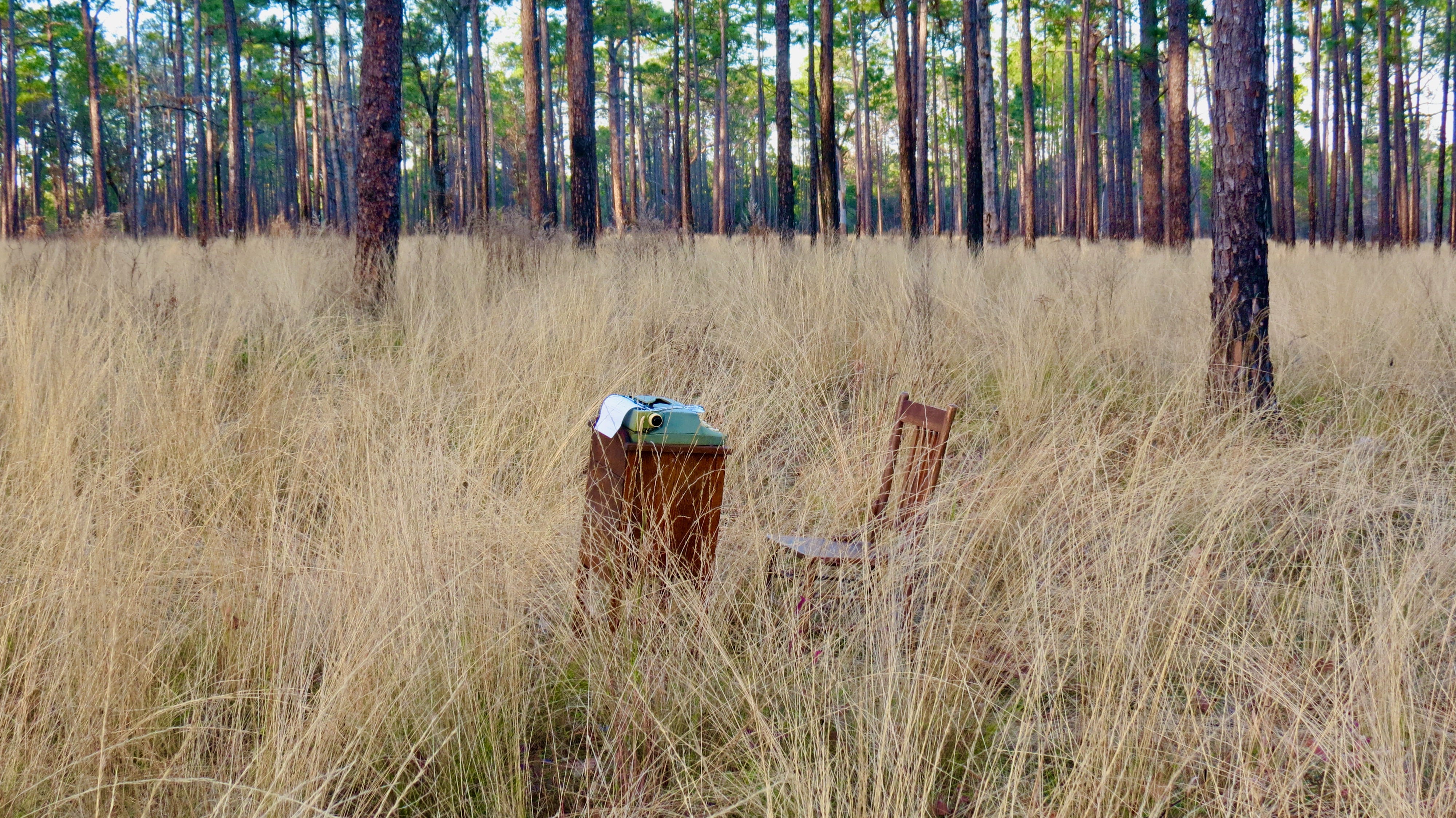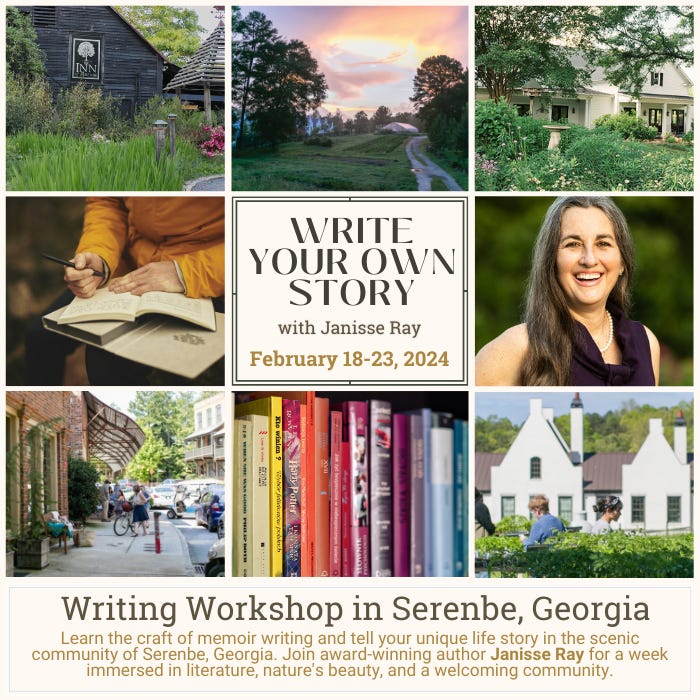How to Find Time to Write
The idea of doing it is far more enjoyable than the lived experience.
Most people have an idea for a book and they want to write the book, but they never actually get started.
The same is true of an essay.
The idea of writing is far more appealing and enjoyable than the experience of doing it.
To be a great writer, you have to show up. That’s your first hurdle. You'll never get anywhere unless you show up, and showing up is not easy. In fact, it's about the hardest thing you'll ever do. Most people can't do it. Much of the time I can't.
In order to be a writer—any kind of writer, good or bad, known or unknown, read or unread—a writer has to produce stories. That means you have to nail your shoes to the floor beneath your writing desk. Your friends and family and lovers beg you to watch movies, visit faraway places, hike trails, bake cakes, make love. The last thing you want to do is sequester yourself in your writing cubby. But if you don’t, you’re not writing, and if you haven’t written, you’re not a writer. You’re a dreamer.
Second, to be a great writer, you have to finish. "People write promising pieces but never finish them," my teacher William Kittredge told me. "Finish them!"
"Write through once," he said.
Then revise.
Don’t start revising until you have an entire first draft on paper. If you do, you can easily get stuck making things better along the way. The true definition of “better” is FINISHED.
Listen. A writer is always in the middle of a long and painful process. By the time you get to revisions you have done the hardest part of all, the part that most people never actually accomplish, and that is getting a rough draft on paper.
I know a person who couldn’t get past his first sentence. He wanted a good first line. He wanted it to be perfect.
You don’t get a perfect first line by writing it first. You get it by going in a dizzying circle, on and on, until you return to where you started. And not once. You run the circle over and over and over.
I found a note about this, written some years ago to one of my college students:
In your piece I find wonderful moments, great sentences, and interesting introspection. I can see that you have a flair for writing, and you’ve proven your dedication in these pages. You have a wonderful start. As time goes on you’ll have a beautifully strong and fluid voice from which to tell your story. I don’t want any of my suggestions to hamper you from moving forward valiantly and capably and quickly.
So if this piece were mine, I would not pause in my writing to do any tinkering or revising.
What you need more than anything, right now, is to get the entire story onto paper.
When I edit a piece that I did not write, I first try to appreciate that the writer stuck with the project to the end. You did the work. You put the final period on the final sentence of the final page. That’s more than most people can say. Good for you. Congratulations are in order. After I acknowledge that amazing accomplishment, I can tackle what's going well and then what's wrong.
My advice to everybody is, Keep going. Write. Write and do not waste time. Get to the end. Afterward you can begin the process of winnowing, patching, deleting, sanding, ordering, replacing, and otherwise making yours the powerful story it can be.
*~*
“Write and do not waste time” is easier said than done. This week a young woman in my nature-writing masterclass admitted that she is struggling to actually do the writing. She has a full-time job. She has anxiety that must be managed. She has a romantic relationship.
“How do writers do this?” she asked. Meaning, how do writers actually sit down and write?
They do it by doing it first. By making it a priority. By making it an activity that everything else revolves around. By setting a time for it. By scheduling it on the calendar. For refusing to let anything beyond a bleeding emergency get in the way of it. By doing short pieces that trigger dopamine, the feel-good hormone that floods the body when you accomplish something. By getting these short pieces out into the world. By feeling more rushes of dopamine from publishing and letting that drive them to do more. By enjoying the process. By enjoying the silence and spaciousness. By enjoying the self-exploration. By being rabid about creativity. By thanking the spirits.
By foregoing some things. By giving up some things. By doing it like an addict, in the bathroom and on the train and at lunch.
By wanting the stories more than you want almost everything else.
*~*
That’s my style. Obsessive. Compulsive. All or nothing. Ambitious.
I truly do understand if that’s not your style. Maybe you, like the writer in my course, has to take things slow.
Then take them slow. Work when you can.
Someone asked me once, What advice do you give to people who work full-time?
People arrive to writing from varied circumstances. Some are trying to balance a harried lifestyle with a creative one. Some have to complete reports and plan for classes and arrange childcare or pet care or elder care before they take an absence to write. Some arrive with ideas sparking, some need space to develop them. Some need time to wash away other voices that tug at them and to become immersed in the serenity of their writing space and, in turn, to access their deepest emotions and their art.
My advice is, Do what it takes.
Writing Prompt
What am I doing that I don’t need to be doing?
Five Opportunities to Go Farther With Me
Simply subscribing to THE RHIZOSPHERE, which likely you have already done, gets you everything I know about writing, 100% free. (If you decide to become a paying subscriber, there are benefits beyond the content, and I’m working on adding more.)
An online course, Magical Craft of Creative Nonfiction, starts Jan. 17, 2024. It meets 7-9 Eastern US/Canada Time on Wednesdays for 6 weeks. It’s live via Zoom. We’ll focus on flow-writes, micro-memoirs, flash essays, as well as longer essays. The cost is $500. This is the place where the most people start. It’s a good, solid course that gets rave reviews from writers. You can find out more info and register here.
Nature Journaling School. I got into the habit of leading journaling sessions on Sunday afternoons at 5 pm Eastern US Time. One-hour sessions. Live via Zoom. We did grief journaling during the pandemic, then earth journaling (which was eco-grief), and now I’m offering Nature Journaling. This is a focus on creativity, using words & images & colors & shapes to inform the space of the page. Visual art is not my forte, so I’ll be working with a few artists during the 5 weeks. The cost is sliding scale. I think you have to pay at least $1, but you get to decide the amount. Registration is via Eventbrite.
Journey In Place: A Year-Long Course in Place-making. This is the most extensive and comprehensive course I’m doing right now. It has been receiving a tremendous response, which lets me know that many many people are seeking to deepen their relationship with their place. Registration is simply a paid subscription to the Substack where I publish my writing, TRACKLESS WILD. That’s $9/month or $99/year, and it includes Journey in Place, the book. Yes, you read that correctly. An entire correspondence course plus a real book for $99. Here’s a good place to get more info.
Starting Feb. 18, 2024 I’ll be guiding a week-long writing retreat and seminar at the Serenbe Community in Atlanta, Georgia. Write Your Own Story in an in-person, intensive, and super-fun kind of way, incorporating somatic work & community work & outdoor explorations. Information is here.






Janisse. But what about those of us with 5-6 different book ideas in our brains?? *sobs* Do we work on them simultaneously of pick the one standing out to us most and move forward with it?
And I think this resolves a NaNo book I made to 50K in 2021 but the book isn't complete. I have been planning on working on revising it and add in some details, but just haven't done it, before starting the back half of the book. But I think you are 100% right, I need to finish the entire thing and then back in and edit and add in some details.
I feel a very hurried and desperate push to get some of these ideas written this year and am doing my best to cut out some other projects and distractions (*cough cough, social media, cough*) to get it done this year. With my On Texas Nature essays I can ruminate on them for a day or two and then the words just flow. I need to get it out of me and after brief revisions, it is done. Longer pieces seem to be harder to pull out of me and I know what has to be done but dang, if it isn't hard.
I love this Janisse. Writing (as far as my creative writing) is not my main business. I am self employed, have two young boys who are home schooled, am the breadwinner for the family and run a farm. Life is full.
I started a Substack page as a love letter to myself and my writing, to be something to show up for, a declaration of importance. It’s been a joy to produce, and sometimes painful to do- which I understand to all be a part of jt.
You certainly have to carve out the time because it doesn’t appear. But I have noticed that the more you “do” the more you want to do and it generates its own energy that way.
On the days I don’t get to write a lot, I still read through what I’m working on or do something in service of it, however tiny, so the creative spirits keep the ideas flowing even if I’m not free to capture them immediately.
I so appreciate everything you share, your work and teaching is such a balm and inspiration to me xx